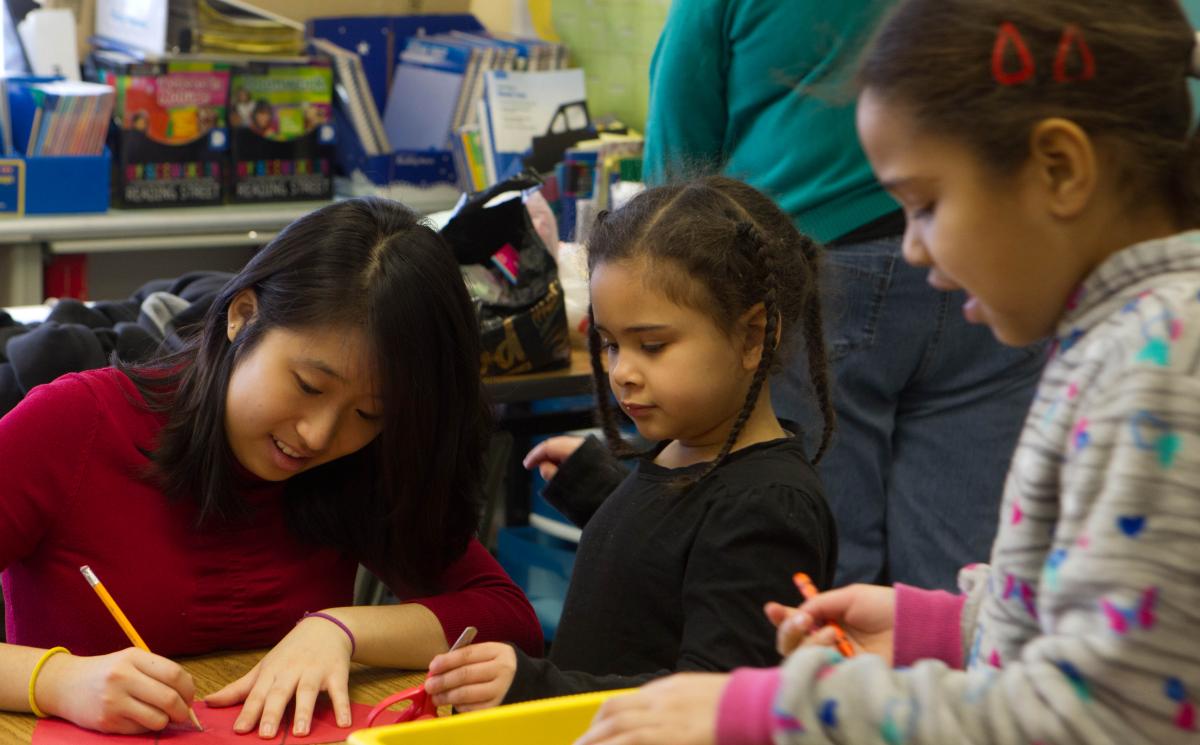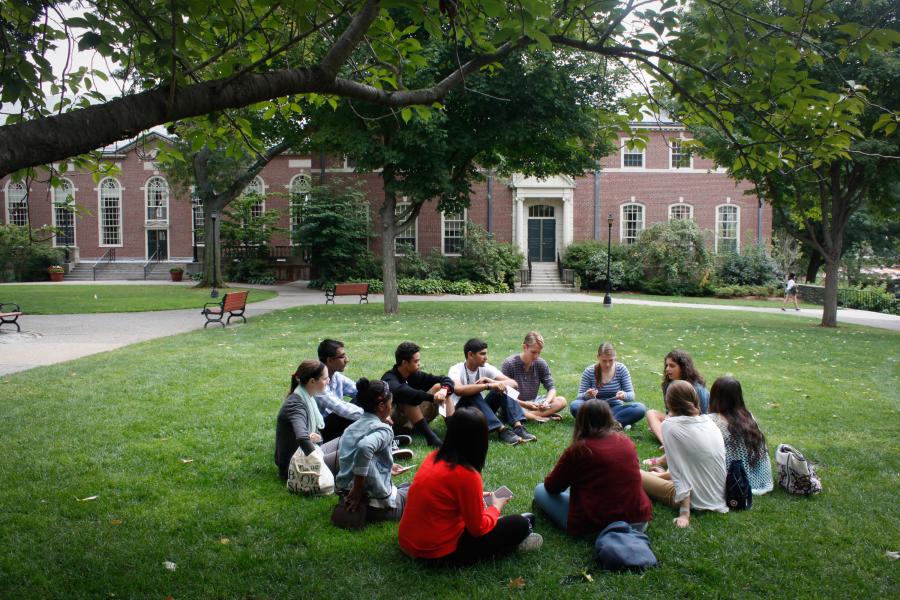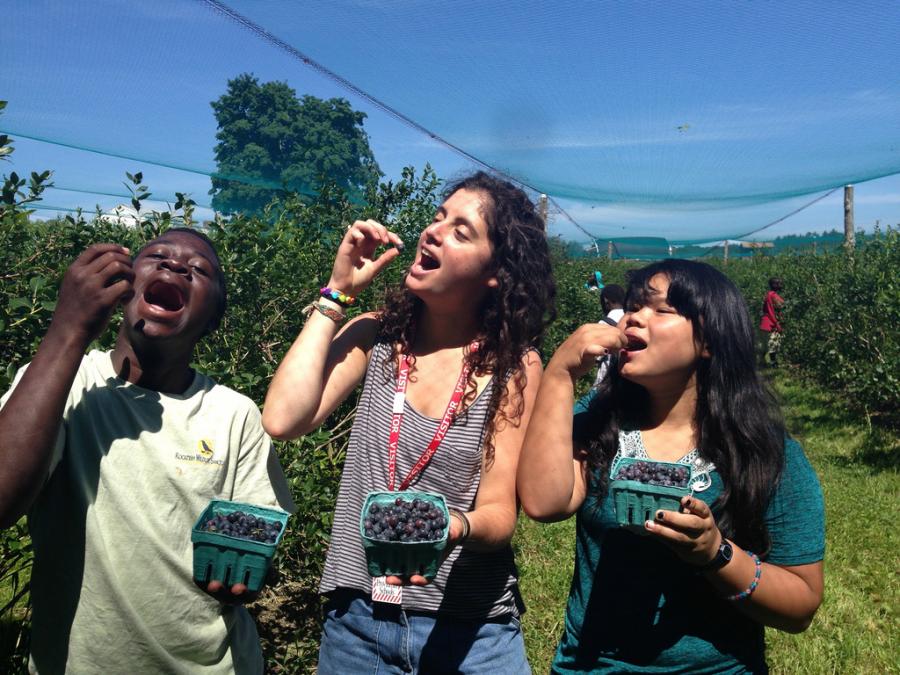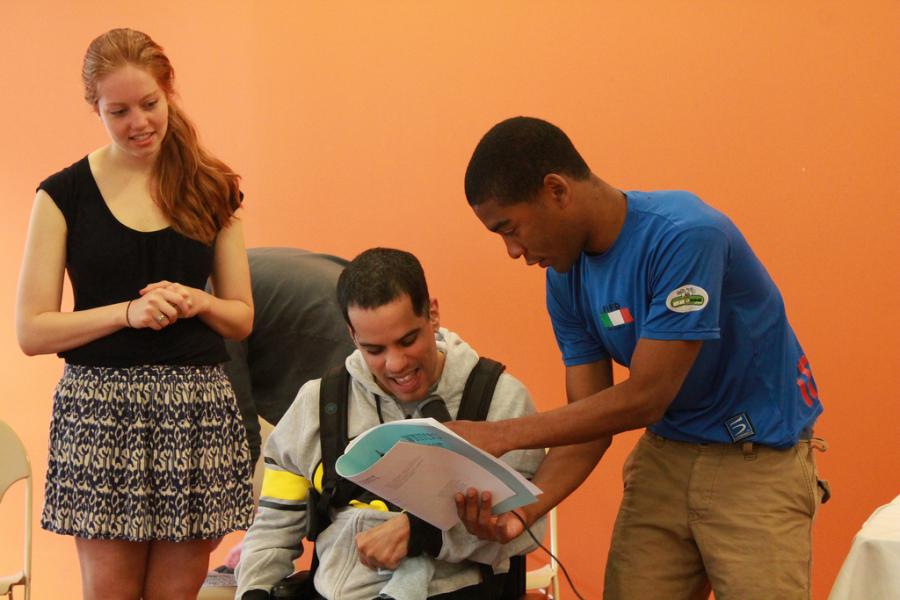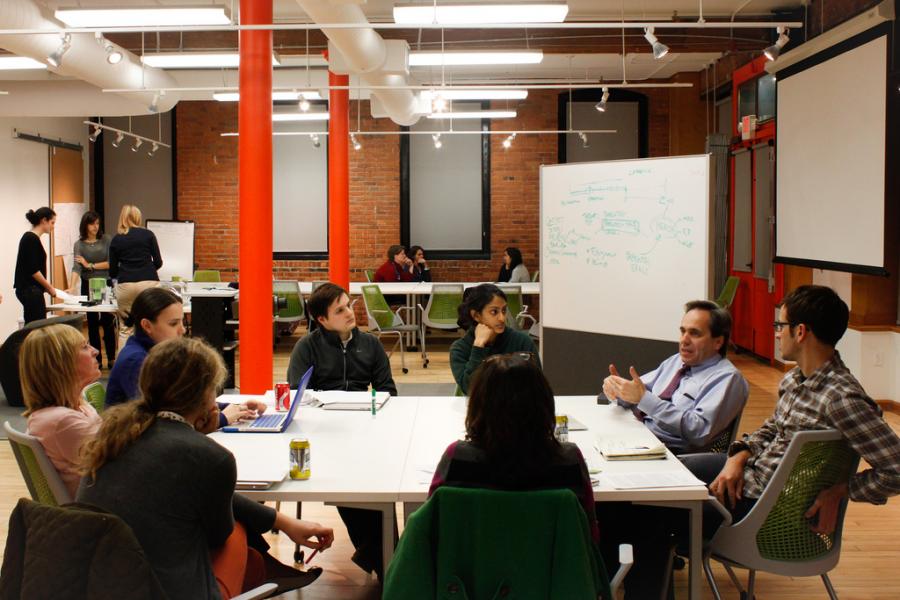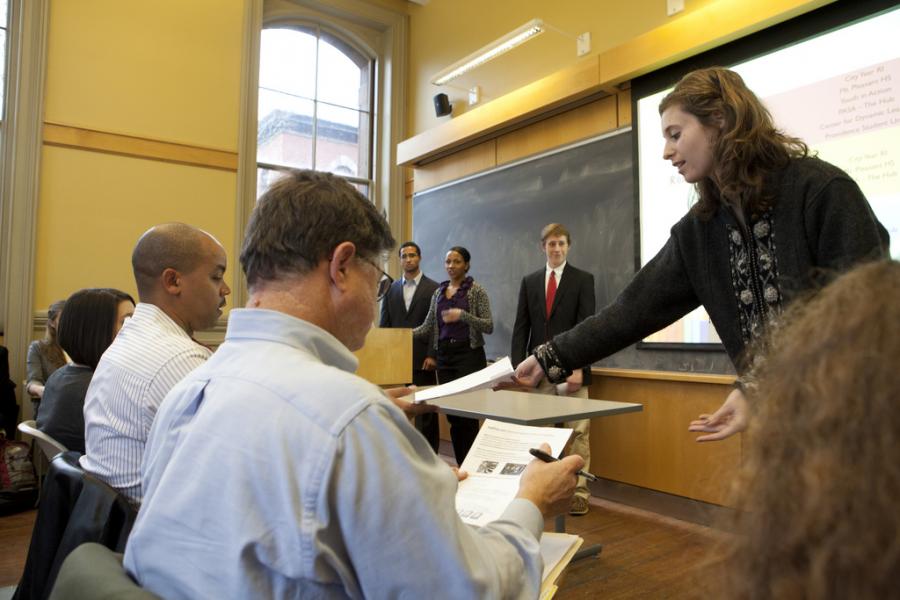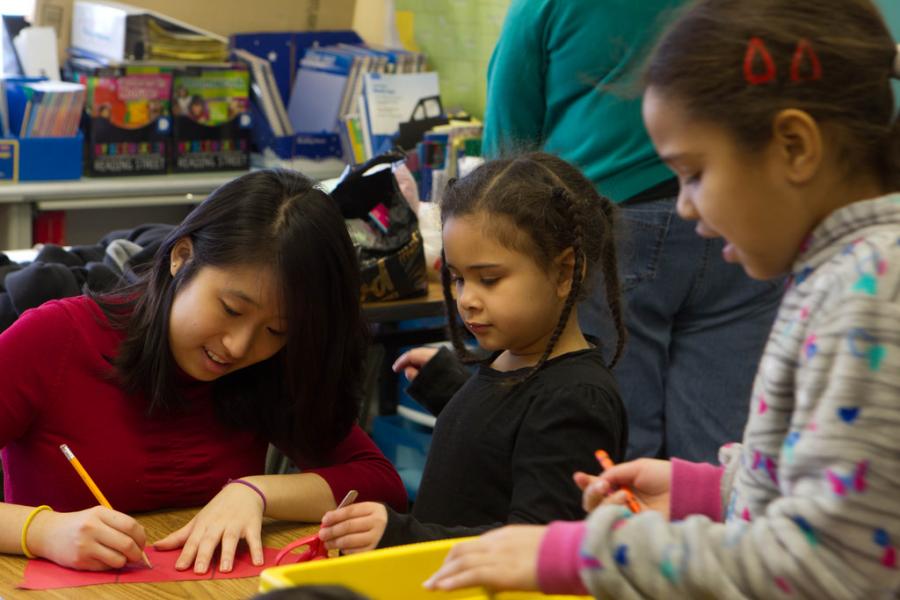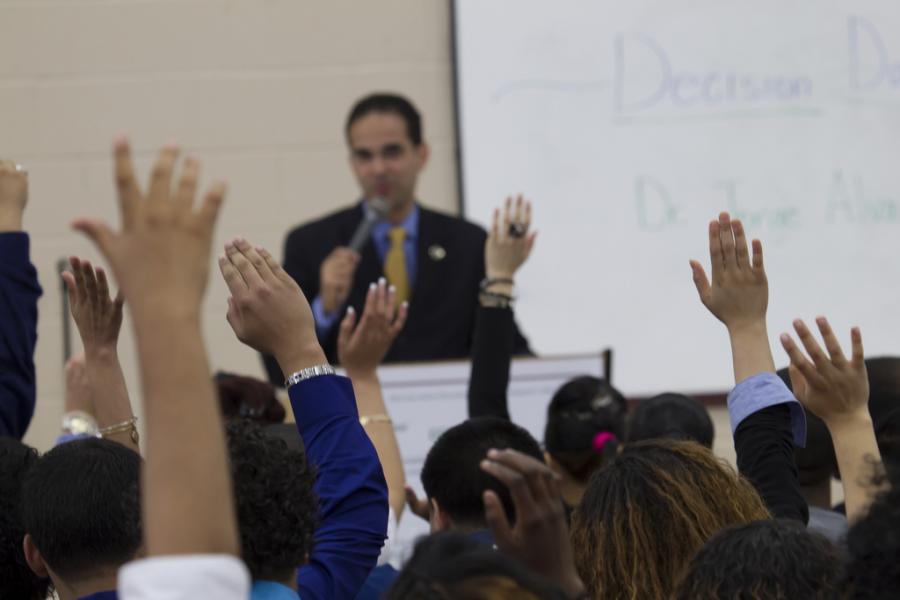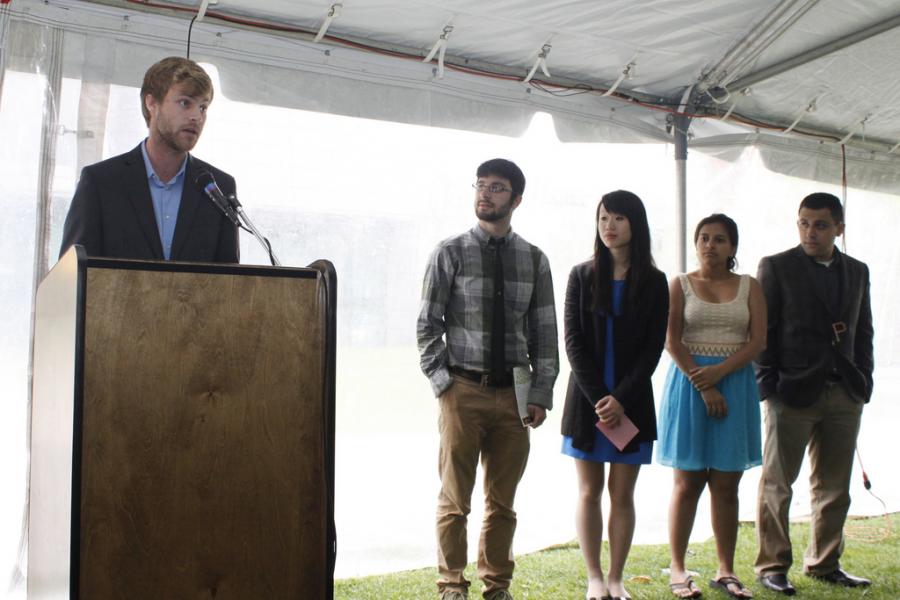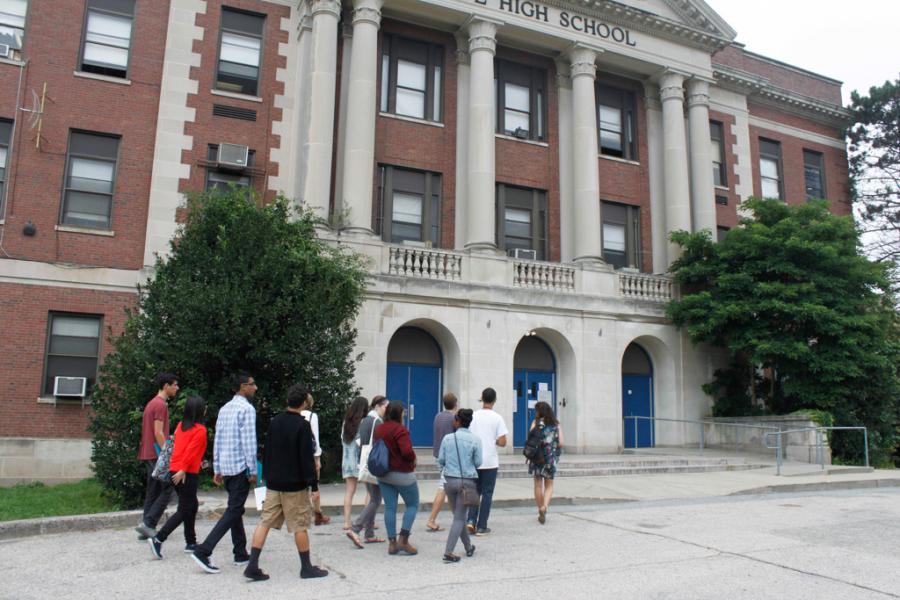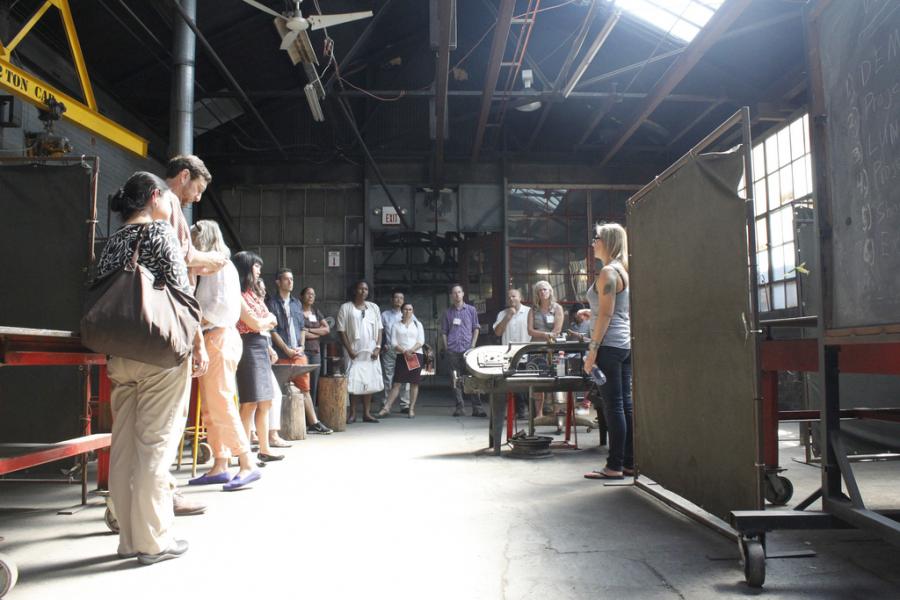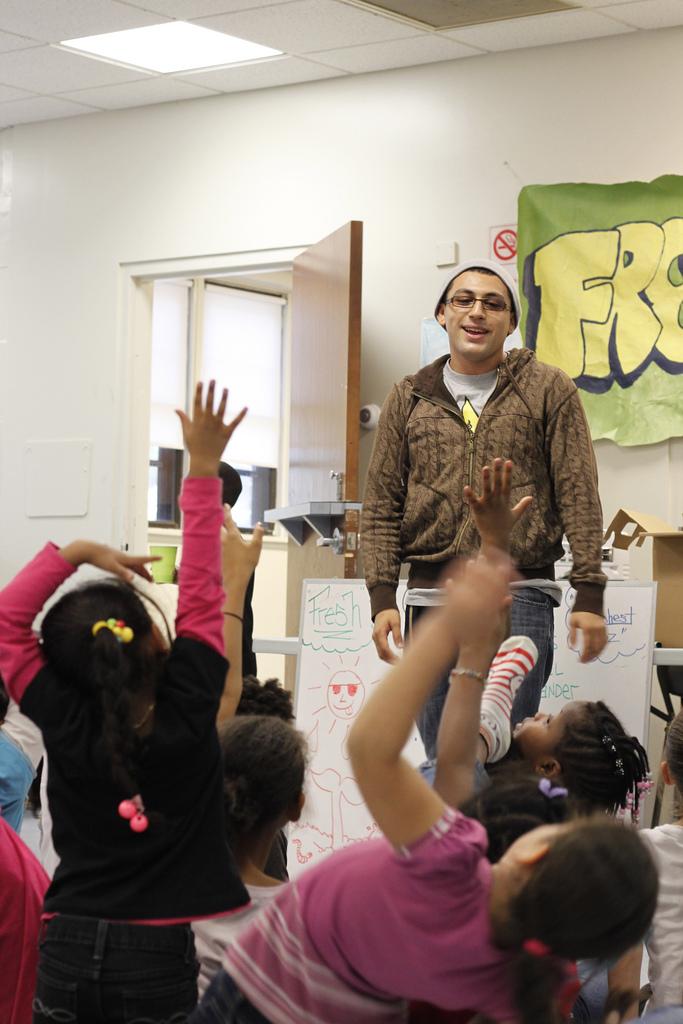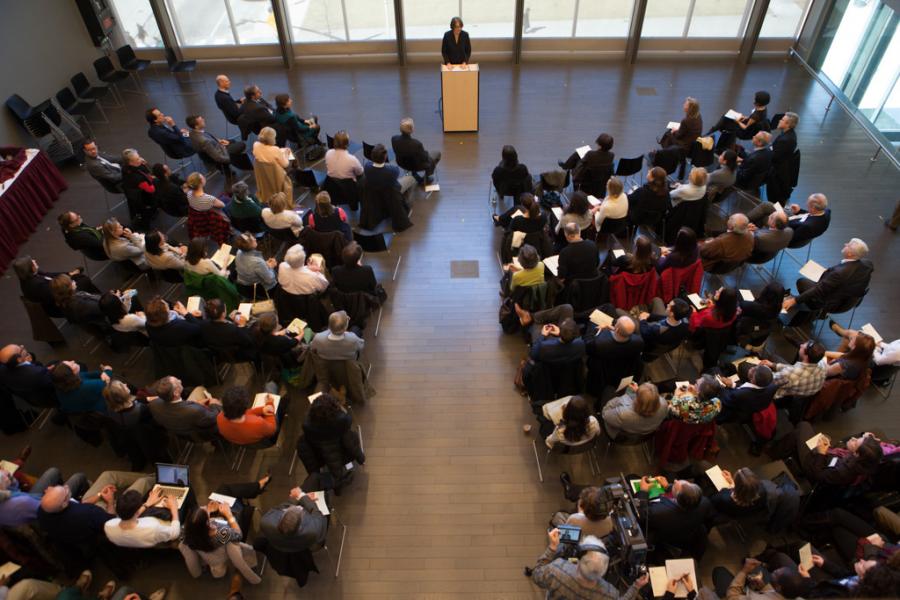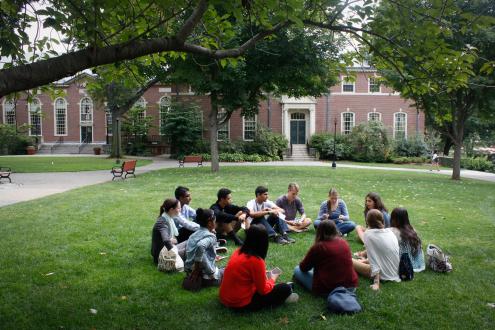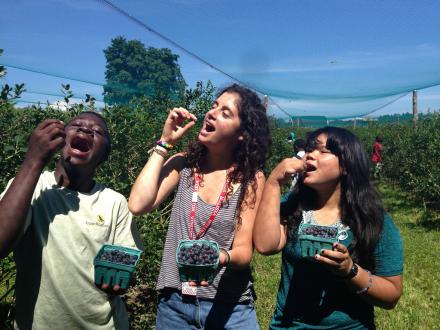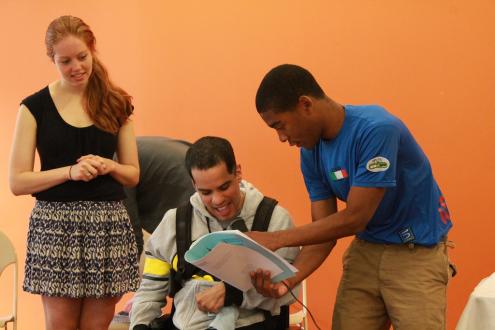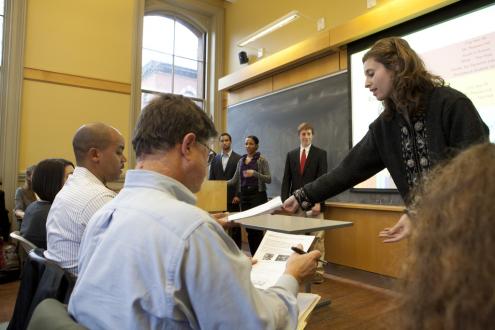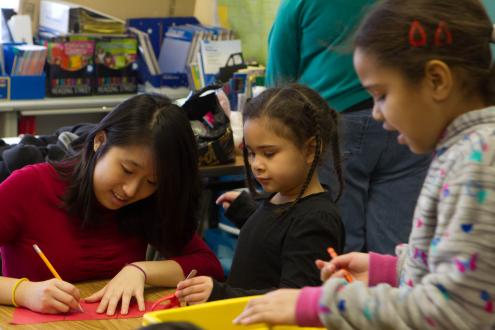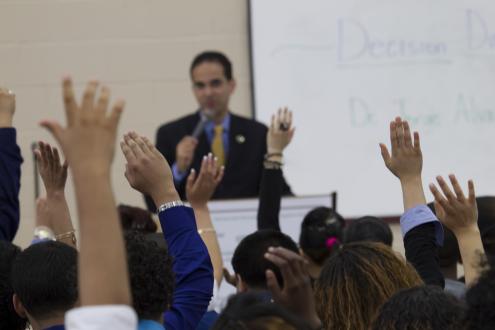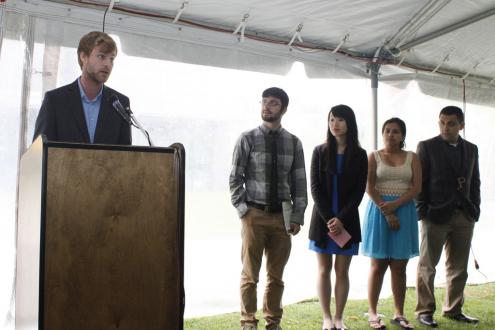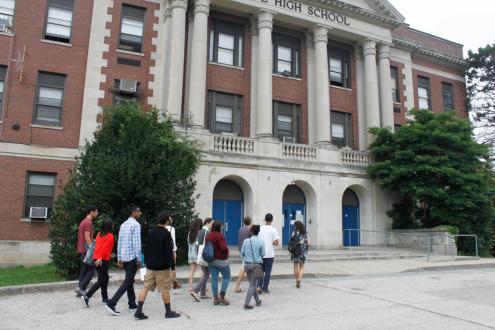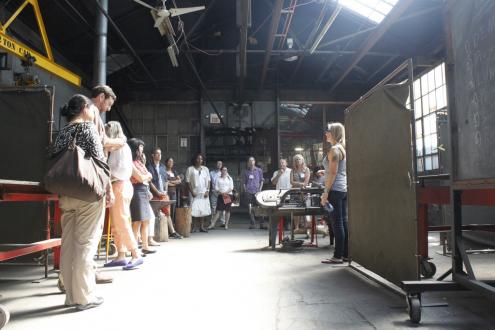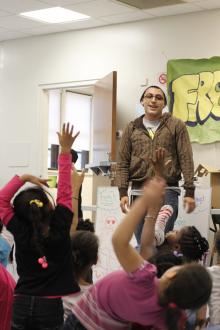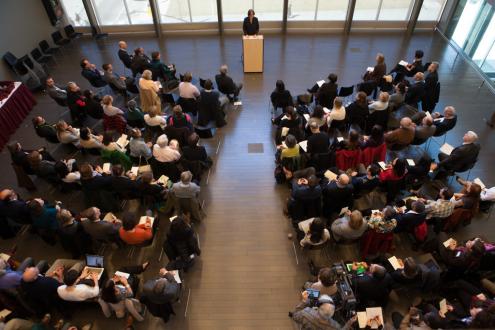With the creation of the Swearer Center for Public Service in 1986, Brown became one of the first campuses in the nation to establish a formal center for public service. Its founder, President Howard Swearer, believed that community engagement should be a powerful and formative part of a Brown education.
We are a community that celebrates intellectual curiosity, creativity, and individuality; appreciates the power of collaboration among individuals with different perspectives, backgrounds, and areas of expertise; and fosters research and education that strive to have a positive influence on society.
— “Building on Distinction: A New Plan for Brown,” October 26, 2013
In 25 years of carrying out Swearer’s legacy, the Center has built a reputation for transformational learning and strong community partnerships, evolving and deepening the idea of “engaged scholarship” at Brown. What began as a handful of programs and fellowships has blossomed to encompass dozens of programs that help advance Brown's mission to “serve the community, the nation, and the world" through innovative, integrative approaches to academic and community work.
Structured, personalized advising is deeply embedded throughout the Center’s programs in order to help students explore their passions and build the knowledge, skills and relationships necessary to lead lives of effective action.
Community Programs, in which approximately 600 volunteers participate annually, provide students with the opportunity to engage with local issues through after-school tutoring, college preparatory programs, homeless advocacy, prison-based arts workshops,and more. Students and recent graduates are also placed in local schools through the College Advising Corps, an AmeriCorps program dedicated to increasing the number of low-income, first-generation college and underrepresented students who enter and complete a post-secondary education.
Swearer fellowships fund a diverse range of scholarly and service projects developed by Brown undergraduates. From social entrepreneurship (Social Innovation Fellowship) to independent research (Royce Fellowship), students apply their skills and passions to critical questions and global issues.
The University Community Academic Advising Program (UCAAP) is a formal academic advising program designed specifically for first-year students to integrate community service and social change work into their Brown experience.
The Center also works with more than 60 Brown faculty members to support their teaching, research and scholarship through the Engaged Scholars Initiative. Currently, a total of 44 Engaged Scholar courses are taught across 19 disciplines ranging from American Studies to Writing and Composition.
The Social Innovation Initiative, created in 2007, provides opportunities for students to explore transformative, innovative, sustainable solutions to the world’s problems through venture development, cross-disciplinary courses, student groups, and connections to jobs, internships, and other opportunities to apply learning. These efforts sparked Brown’s selection in 2013 as an Ashoka U Changemaker Campus—a global network of entrepreneurial universities and colleges with a commitment to social innovation—and host of the 2014 Ashoka U Exchange.
President Paxson’s strategic plan for the University emphasizes “integrative scholarship” and Brown’s social impact. The TRI-Lab (Teaching, Research, and Impact), an early initiative of the plan, brings together students, faculty, and community practitioners around complex social issues to collaboratively develop, refine, and test evidence-based solutions. The heart of the Lab is a yearlong seminar in which participants explore context and community experience, use multiple research methods to advance understanding, and creatively harness their diverse perspectives and expertise towards testing solutions. By 2015, three Labs will have been launched, focused on healthy early childhood development, healthy food access and climate adaptation and environmental justice.
A Program in Engaged Scholarship, creating a platform for undergraduates to integrate their community work, research, and internships directly with their concentrations, was piloted in fall 2014.
As the University enters a new era, the Swearer Center will continue to work with faculty, students, and community partners to advance the ideals of engaged scholarship and impact far beyond College Hill, ideals the University has championed throughout its 250-year history.

